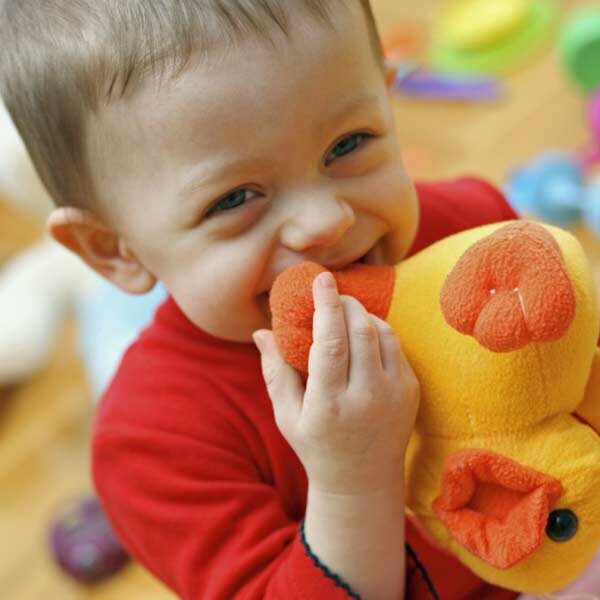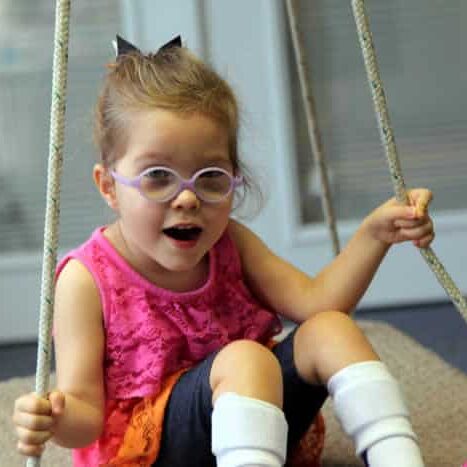Therapy they actually look forward to
Speech Therapy
A child with a speech disorder may have difficulties in many arenas of their lives -- learning, development, health, social, and emotional. We work closely with parents, schools, and other professionals to maximize outcomes.
Occupational Therapy
Our OT services help children develop strength, body awareness, balance, and perceptual abilities. These are needed to acquire gross and fine motor skills and improve your child's interactions the their environment.
Some of the many programs we offer
Your child's program(s) will be tailored to their own unique needs and objectives.
P.R.O.M.P.T.
Myofunctional Therapy/Tongue Thrust
Kaufman Method
SOS Approach to Feeding
The Sequential Oral Sensory feeding program focuses on increasing a child's comfort level in exploring and learning about the different properties of foods, including texture, smell, taste, and consistency. This approach allows a child to interact with food in a playful, non-stressful way.
It's easy to get started
Evaluation
A thorough evaluation by one of our speech pathologists will give us the best starting point. It will help pinpoint your your child's issues so we can provide the most appropriate, effective, and efficient treatment.
Insurance & Billing
We accept most health insurances however we do not accept Peach State, Peachcare, Wellcare, Amerigroup, Caresource, Tricare, Kaiser, Medisource or Medicaid CMOs.
Follow our blog to stay on top...
News, announcements, feature articles, tips, home activities, resources, and more.
What Are the Main Goals of the Prompt Therapy Approach?
PROMPT stands for Prompts for Restructuring Oral Muscular Phonetic Targets PROMPT therapy is a technique that can be used to treat a variety of speech delays and disorders. PROMPT is particularly helpful in the treatment of Childhood Apraxia of Speech (CAS). Children diagnosed with CAS often lack planning and coordination of the articulators, which…
Read MoreInfant Tongue Tie- My Experience with Tongue Tie Release as a Mom and OT
What is a Tongue Tie? Tongue ties have become a hot-button issue lately, yet many remain unfamiliar with what they entail or how to recognize them. Essentially, a tongue tie occurs when excess tissue tethers the tongue to the floor of the mouth, either anteriorly (at the front) or posteriorly (in the middle). Typically, accompanying…
Read MoreExpressive or Receptive Language: Which One Comes First?
Expressive or Receptive Language: Which One Comes First? Have you ever been chatting around your baby or toddler thinking they can’t understand you, but come to find out they could understand you the whole time? Maybe you were watching football and yelling at your team’s quarterback “Throw it! Throw it!” and next thing you know,…
Read MoreWhat Does the Kaufman Apraxia Test Assess For?
If you look back at our previous blog, Imitating Speech: What is Childhood Apraxia of Speech (CAS) and How Might it Affect My Child, you will see a breakdown of what Childhood Apraxia of Speech is and how it presents in young children. In a nutshell, CAS involves lack of planning and coordination of the…
Read MoreFostering Independence: The Importance of Cup Drinking for Toddlers and Choosing the Right Cups
As toddlers grow and develop, mastering new skills becomes vital to their daily lives. One such skill that holds a good deal of significance is cup drinking. In this blog post, we’ll explore the developmental benefits of cup drinking for toddlers and delve into preferred cups in occupational therapy, speech therapy, and feeding therapy. …
Read MoreGestalt Language Processing
Why does my child repeat everything they hear? We’ve all seen it. The dreaded moment when a toddler is beginning to acquire language, and they repeat something they really shouldn’t. It happens to the best of us. And it happens in every family, whether people care to share the story or not! For most…
Read MoreWhat is Modified Baby Led Weaning?
These days many parents are giving their babies control of what they eat at an early age. Instead of preparing separate meals and pureed foods for every meal for their baby, parents are giving them solid table foods, a version of what everyone in the family may be eating for the meal. This method, termed…
Read MoreHelp Your Child Learn to Read: Phonological Awareness Games for Preschoolers- Deletion/Substitution
We have finally arrived at the final part of our Phonological Awareness Games for Preschoolers series! In my three previous Phonological Awareness posts, we have identified the areas of Phonological Awareness that are vital for the foundation of reading, and we have also dug a little deeper into specific games/materials you can utilize at home…
Read MoreHow Does Sensory Integration Help Our Kids Learn to Talk!
It is no secret that movement is beneficial. It is touted as one of the most important daily activities to manage our mental and physical health and improve brain function. Movement for children is equally important, especially those with sensory dysfunction. Children with sensory processing difficulties have trouble understanding and interacting with the sensations in…
Read MoreWhat are The Main Stages of Gross and Fine Motor Development?
Fine Motor and Gross Motor Development Motor skills are at the forefront of development and affect all areas of daily function. However, it is sometimes unclear what constitutes a gross motor skill and what constitutes a fine motor skill, and how you know if your child is on track for both. Gross motor skills are…
Read MoreFollow Us on Instagram!
Conveniently located
Winn Medical Center
495 Winn Way, Ste. 210
Decatur, GA 30030
770-209-9826



















You must be logged in to post a comment.